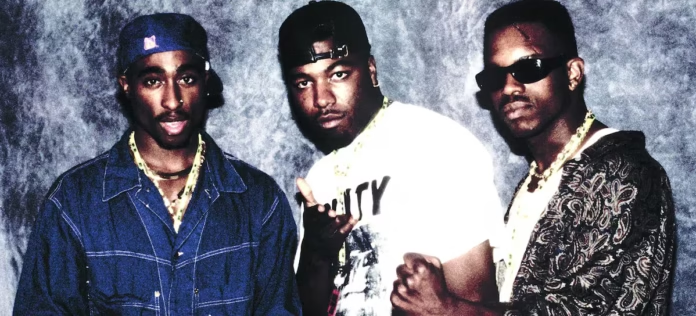Def Jam, a name synonymous with hip-hop’s golden era, continues to shape the music industry in 2025 with bold moves and unexpected shifts. Just this week, news broke that the iconic label parted ways with Clipse, the Virginia Beach rap duo of Pusha T and No Malice, over a dispute involving a Kendrick Lamar feature on their upcoming album, Let God Sort Em Out. This development underscores Def Jam’s ongoing struggle to balance artistic freedom with corporate pressures, a tension that’s defined its legacy for decades. Let’s dive into the latest chapter of Def Jam’s story, exploring how this legendary label navigates the modern hip-hop landscape while staying true to its roots.
Def Jam’s Clash with Clipse
The split between Def Jam and Clipse marks a pivotal moment for both the label and the duo. Last year, Clipse signed with Def Jam to release their first album in 15 years, Let God Sort Em Out, set to drop on July 11, 2025, now through Roc Nation. The album, entirely produced by Pharrell Williams, was initially poised to be a flagship release for Def Jam. However, tensions arose when the label, under its parent company Universal Music Group, pushed to remove a Kendrick Lamar verse from the track “Chains & Whips.” The concern? Optics. With Kendrick and Pusha T both having high-profile feuds with Drake, UMG worried about the perception of uniting Drake’s rivals on a single track, especially amid Drake’s ongoing lawsuit against UMG. Pusha T, known for his uncompromising stance, refused to censor the verse or cut the track, leading to Def Jam dropping both Clipse and Pusha T as a solo artist. This move has sparked heated discussions among fans about Def Jam’s priorities in today’s rap game.
The Label’s Corporate Crossroads
Def Jam’s decision reflects broader challenges in the music industry, where corporate interests often clash with artistic integrity. The label, founded in 1984 by Rick Rubin and Russell Simmons, built its reputation on raw, groundbreaking acts like LL Cool J, Public Enemy, and Jay-Z. Yet, in 2025, Def Jam operates under the umbrella of UMG, a conglomerate navigating complex legal and market dynamics. The Clipse situation highlights how labels like Def Jam must weigh creative risks against potential backlash. Pusha T called the label’s fears “stupid,” insisting Kendrick’s verse contained no subliminal jabs. This standoff raises questions about whether Def Jam can maintain its edge as a tastemaker when corporate caution takes precedence. Fans on social media have voiced frustration, arguing that Def Jam’s hesitation undermines the very authenticity that made it a hip-hop powerhouse.
| Key Players in the Def Jam-Clipse Split | Role |
|---|---|
| Pusha T | Clipse member, solo artist, refused to alter Kendrick’s verse |
| No Malice | Clipse member, focused on reunion album |
| Kendrick Lamar | Featured artist on “Chains & Whips,” central to dispute |
| Pharrell Williams | Producer of Let God Sort Em Out, longtime Clipse collaborator |
| Universal Music Group | Def Jam’s parent company, pushed for verse removal |
What’s Next for Def Jam?
With Clipse now at Roc Nation, Def Jam faces the challenge of redefining its roster and vision. The label still boasts heavyweights like Kanye West, whose G.O.O.D. Music imprint has ties to Def Jam, and emerging talents, but losing Clipse is a blow. The duo’s departure could signal a shift toward safer, less controversial releases, a move that risks alienating fans who crave the unfiltered energy Def Jam once championed. Meanwhile, Pusha T and No Malice are thriving, with their album generating buzz for its gritty lyricism and Pharrell’s innovative production. The lead single, “Ace Trumpets,” has already stirred reactions, including a public olive branch from Kanye West, who expressed missing his “friendship” with Pusha T after a name-drop in the track. Def Jam must now find new ways to reclaim its cultural clout, perhaps by doubling down on bold, independent voices unafraid to push boundaries.
The Bigger Picture for Hip-Hop
The Def Jam-Clipse saga is more than a label dispute; it’s a snapshot of hip-hop’s evolving dynamics. As streaming platforms and social media amplify artists’ voices, labels like Def Jam must adapt to a landscape where fan loyalty and authenticity reign supreme. Pusha T’s defiance and Clipse’s move to Roc Nation reflect a broader trend of artists seeking creative control. The success of Let God Sort Em Out could set a precedent for how veteran acts navigate corporate gatekeepers. For Def Jam, the challenge is clear: evolve or risk fading into nostalgia. The label’s next moves—whether signing new talent or rethinking its approach to artist freedom—will shape its relevance in a genre that thrives on innovation.
Stay tuned to see how Def Jam responds to this shake-up and whether it can reclaim its throne in hip-hop. Share your thoughts on Clipse’s departure and what it means for the label’s future in the comments below!
